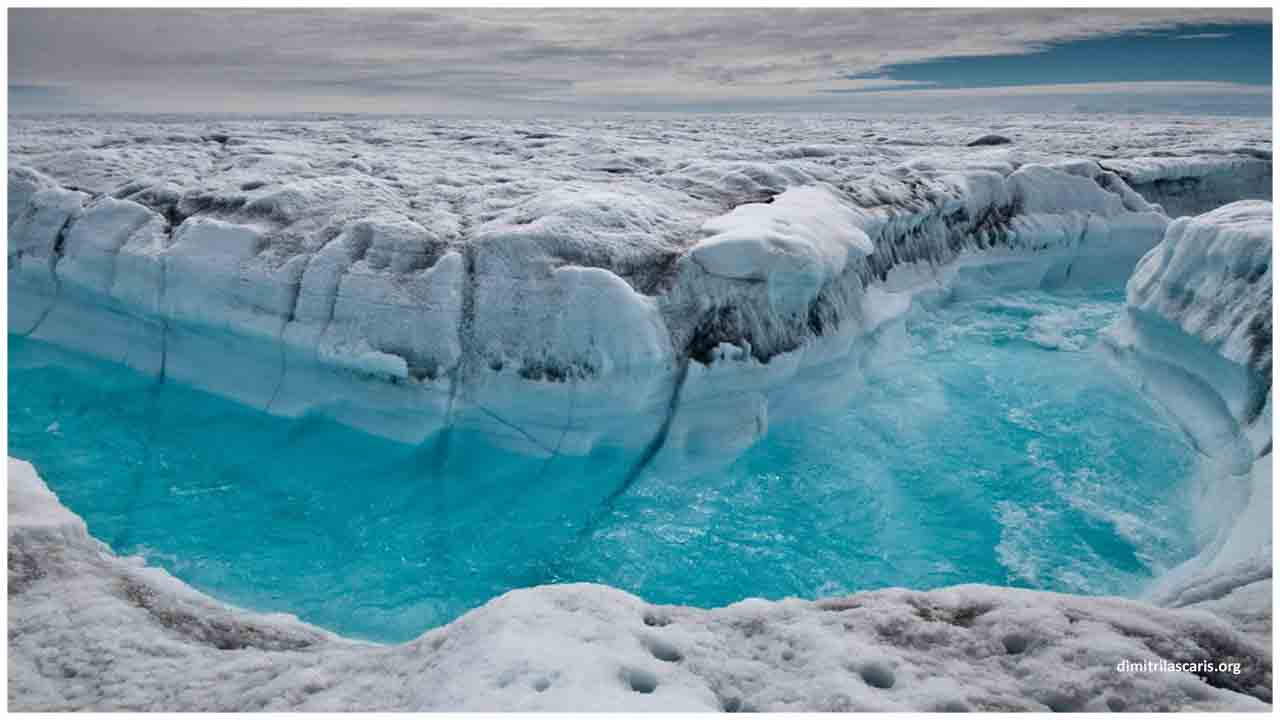The softening of Greenland's ice top has gone so far that it is currently irreversible, with snowfall not, at this point ready to make up for the loss of ice regardless of whether a dangerous atmospheric deviation was to end today, as per specialists.
"Greenland's icy masses have passed a tipping purpose of sorts, where the snowfall that renews the ice sheet every year can't stay aware of the ice that is streaming into the sea from ice sheets," said an announcement from Ohio State University, where a few creators of an investigation distributed August 13 in Communications Earth and Environment is based.
Environmental change is devastatingly affecting the world's ice sheets, with the ice dissolve representing a danger to a large number of individuals around the globe.
During the 1980s and 1990s, the ice top lost around 450 billion tons of ice for every year, which was repaid by snowfall, the researchers said in the wake of examining 40 years of information.
However, the ice soften has quickened this century, moving to 500 billion tons and not, at this point adequately renewed with the day off.
"The Greenland ice sheet is losing mass at quickened rates in the 21st century, making it the biggest single supporter of rising ocean levels," the examination said.
While specialists are in understanding that the Greenland ice liquefy is stressing, not all concur that it has arrived at a 'tipping point'.
"We don't have the foggiest idea how much ozone harming substance focuses will rise," Ruth Mottram, a climatologist at Denmark's Meteorological Institute told AFP.
The distributed outcomes show that "regardless of whether we settled temperatures (and ozone harming substance outflows) at the current level, the ice sheet would, in any case, keep on liquefying, however just until the size of the ice sheet is again in offset with the atmosphere," Mottram said.
Another ongoing examination from the Britain's University of Lincoln inferred that Greenland's ice soften alone is relied upon to contribute 10-12 centimeters to the world's rising ocean levels by 2100.
The UN's IPCC atmosphere science warning board said in 2013 that it expected ocean levels to ascend by 60 centimeters before the century's over.

 The snowfall that replenishes the ice sheet each year cannot keep up with the ice that is flowing into the ocean from glaciers, the study says.
The snowfall that replenishes the ice sheet each year cannot keep up with the ice that is flowing into the ocean from glaciers, the study says.





.jpeg)





.jpeg)







.jpeg)




.jpeg)
.jpeg)








